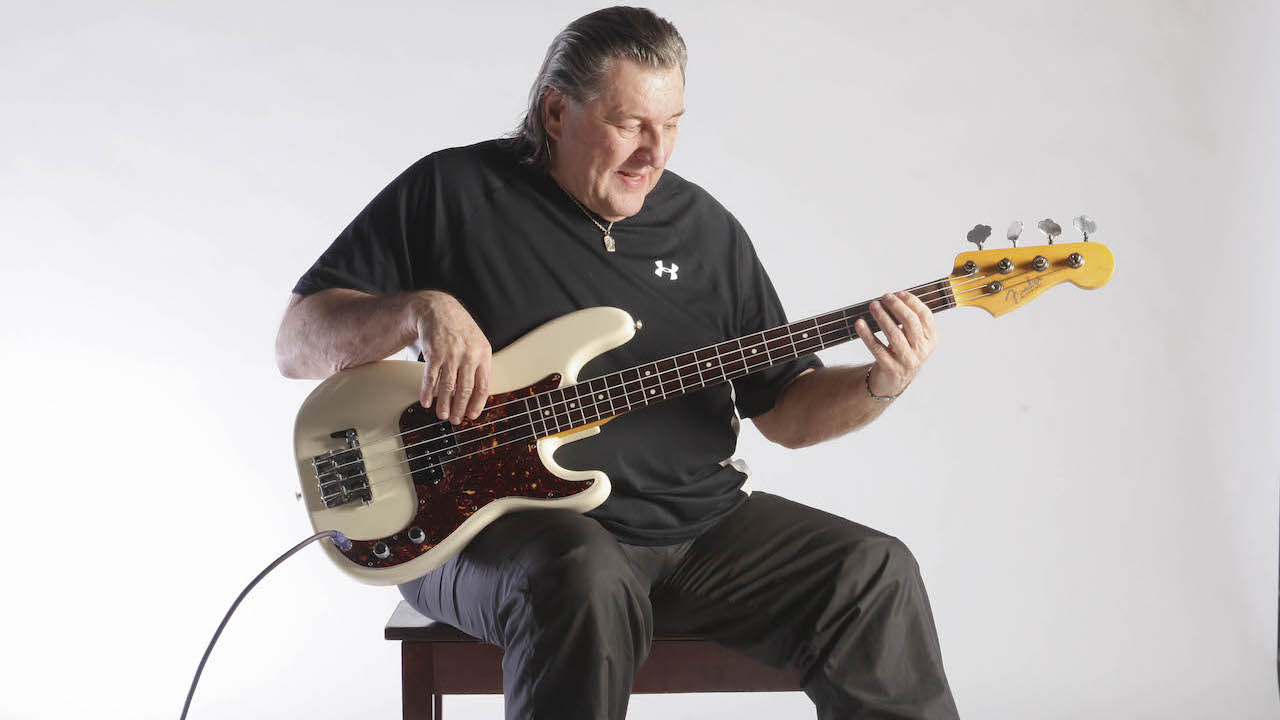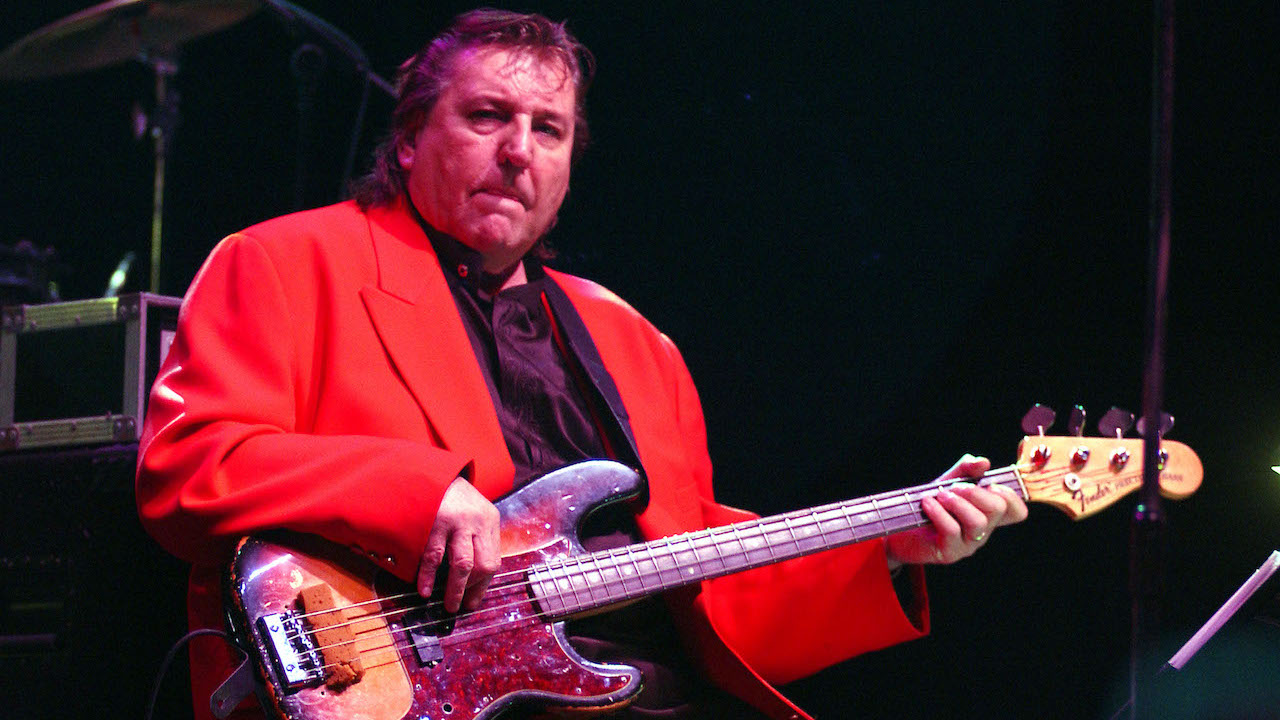“You played on Midnight Train to Georgia? You don’t need no other credits!” How Bob Babbitt bolstered a ’70s soul classic with a touch of James Jamerson
A graduate of “Motown Funk University,” Babbitt said that he took from James Jamerson, but rightly so: “he was the original”

Acknowledged as James Jamerson’s understudy and eventual successor at Motown, the late Bob Babbitt appeared on over 200 Top 40 hits, including The Capitols’ Cool Jerk, Stevie Wonder’s Signed, Sealed, Delivered I’m Yours, and Marvin Gaye’s Mercy, Mercy, Me (the Ecology). New York can also claim Babbitt as one of its own thanks to session work for the likes of Jimi Hendrix, Robert Palmer, The Spinners and Frank Sinatra.
In fact, New York (actually New Jersey) was home to one of Babbitt’s favourite studio dates: his broad-shouldered bassline on Midnight Train to Georgia, a 1974 Grammy-winning hit for Gladys Knight and the Pips.
“That bassline came out of the James Jamerson tradition,” said Babbitt when he was interviewed for the November ’98 issue of BP. “Gladys is from Detroit, so that’s what she wanted. Me and the rest of the studio bassists all had to come up with parts in Jamerson’s style, and rightly so; he was the original.”
“We had recorded the song twice already, with a full eight-piece rhythm section, at Tony Camillo’s studio in Somerville, New Jersey. The following Sunday morning he called to say the track wasn’t happening groove-wise. He wanted to re-cut it with just myself, Andrew Smith on drums, and Jeff Mironov on guitar, and overdub the other instruments later.”
Babbitt recorded his sunburst ’66 Fender Precision bass guitar (with LaBella flatwounds) direct, and he recalled helping the engineer with the bass sound. He also aided in the tunes overall composition.
The bassline begins with Babbitt’s descending diatonic line in the intro. “Tony had written a busy bass part – as well as guitar and drum parts – which we basically abandoned or simplified. After we worked it all out, Tony played chords on a scratch piano part, and we recorded a few live passes, one of which we kept. I don’t remember doing any punches or fixes.”
Babbitt goes on to establish a two-bar melodic and rhythmic motif that he reworks in each verse, giving the bassline forward motion beneath the sparse vocal. “Something I learned in Detroit is that a verse line can be more important than a chorus line. In the chorus a song is usually at its high point vocally and compositionally, but the verse can often use the help of a busier bass part.”
Get The Pick Newsletter
All the latest guitar news, interviews, lessons, reviews, deals and more, direct to your inbox!
For the chorus, Babbitt introduces a new two-bar phrase, which he again develops. “The chord progression changed for the chorus, which helped me come up with something fresh. I like to find little phrases I can develop throughout a bassline to give it substance.”
For the outro, Babbitt returns to the intro bassline, before establishing an alternating pattern that borrows from both the intro and the chorus. Note that the piano plays the same four chords throughout the outro, with Babbitt changing their qualities with his root notes.

As the golden era of the studio bassist came to an unceremonious end in the early ‘80s, Babbitt opted to head for the last safe haven of real bass recording: Nashville.
“If you’re a musician coming to Nashville, everybody asks for credits and reels of your work. So when I moved I tried to recall everything I’d played on and put a list together. One producer took a look at my resume and said, ‘Shoot, you played on Midnight Train to Georgia? You don’t need no other credits!’”
Chris Jisi was Contributing Editor, Senior Contributing Editor, and Editor In Chief on Bass Player 1989-2018. He is the author of Brave New Bass, a compilation of interviews with bass players like Marcus Miller, Flea, Will Lee, Tony Levin, Jeff Berlin, Les Claypool and more, and The Fretless Bass, with insight from over 25 masters including Tony Levin, Marcus Miller, Gary Willis, Richard Bona, Jimmy Haslip, and Percy Jones.
“When I first heard his voice in my headphones, there was that moment of, ‘My God! I’m recording with David Bowie!’” Bassist Tim Lefebvre on the making of David Bowie's Lazarus
“One of the guys said, ‘Joni, there’s this weird bass player in Florida, you’d probably like him’”: How Joni Mitchell formed an unlikely partnership with Jaco Pastorius




![[from left] George Harrison with his Gretsch Country Gentleman, Norman Harris of Norman's Rare Guitars holds a gold-top Les Paul, John Fogerty with his legendary 1969 Rickenbacker](https://cdn.mos.cms.futurecdn.net/TuH3nuhn9etqjdn5sy4ntW.jpg)







